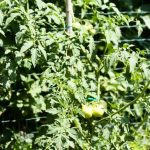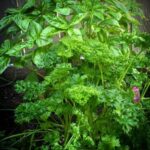Are chickens good for vegetable gardens? Incorporating chickens into vegetable gardens has become a popular trend among gardeners and homesteaders in recent years. The concept of using chickens in vegetable gardens goes beyond just providing fresh eggs – it also involves utilizing the natural behaviors of chickens to benefit the garden ecosystem. From pest control to fertilization, chickens can play a valuable role in supporting the health and productivity of vegetable gardens.
One of the main reasons why many gardeners are considering integrating chickens into their vegetable gardens is their ability to help with pest control and fertilization. Chickens are natural foragers and can work wonders in controlling insects, snails, slugs, and other common garden pests.
Additionally, their droppings can serve as an excellent source of organic fertilizer for the soil, enriching it with essential nutrients. This symbiotic relationship between chickens and vegetable gardens can result in healthier crops and reduced reliance on chemical pesticides and synthetic fertilizers.
In this article, we will explore the various ways chickens can benefit vegetable gardens, from pest control to fertilization. We will also discuss the best chicken breeds for vegetable gardens, provide tips on setting up a chicken coop within a garden space, and offer guidance on managing chicken waste as a valuable resource for garden fertility.
Additionally, we will address potential challenges and drawbacks of having chickens in a vegetable garden while sharing real-life success stories of how this unique integration has produced thriving harvests. Whether you’re a seasoned gardener or new to the idea of incorporating poultry into your growing space, this article aims to provide comprehensive insight into the concept of using chickens in vegetable gardens.
Benefits of Chickens in Vegetable Gardens
When it comes to vegetable gardens, many people may not realize that chickens can be incredibly beneficial. Not only do they provide fresh eggs and entertainment, but they can also play a crucial role in pest control and fertilization for your garden. In this section, we will explore how chickens can help with these important aspects of gardening.
Pest Control
Chickens are natural foragers and love to eat bugs, grubs, snails, and other pests that can wreak havoc on a vegetable garden. By allowing your chickens to roam freely in your garden (while protecting your plants from being pecked), you can significantly reduce the population of harmful insects. This natural pest control method reduces the need for chemical insecticides and promotes a healthier, more organic approach to gardening.
Fertilization
Another benefit of having chickens in your vegetable garden is their ability to provide high-quality fertilizer. Chicken droppings are rich in nitrogen, phosphorus, and potassium – all essential nutrients for plant growth.
By allowing chickens access to certain areas of the garden or using their waste as compost, you can improve soil fertility and promote better yields from your crops. Additionally, the scratching behavior of chickens helps to aerate the soil and mix organic matter into it, further improving overall soil health.
Chicken Breeds for Vegetable Gardens
When considering incorporating chickens into a vegetable garden, it is essential to choose the right chicken breeds that can thrive in this environment and provide maximum benefits. Different chicken breeds have varying characteristics that make them suitable for vegetable gardens, such as their foraging abilities, temperament, and egg production. Here are some of the best chicken breeds for vegetable gardens:
- Rhode Island Red: Known for their hardiness and excellent egg production, Rhode Island Reds are great foragers and can help keep pest populations in check.
- Australorp: These chickens are known for being calm and friendly, making them easy to manage in a vegetable garden setting. They also lay a high volume of eggs.
- Plymouth Rock: Plymouth Rocks are dual-purpose birds that are good at controlling pests and producing eggs while being adaptable to various climates.
Additionally, some bantam breeds, such as Silkies or Dutch Bantams, can be great choices for smaller vegetable gardens due to their compact size and gentle disposition. When choosing the right breed for your vegetable garden, consider factors like climate, available space, and your specific goals for having chickens in your garden.
It’s important to note that each breed has its own unique traits and requirements, so it’s crucial to do thorough research on each breed before making a decision. Ultimately, selecting the best chicken breed for your vegetable garden will depend on your specific needs and the environment you are working with.
In addition to choosing the right breed of chickens, it is essential to consider their individual characteristics. Chickens that are docile and have good foraging abilities can contribute positively to the overall health of a vegetable garden.
Chicken Coop Setup
Setting up a chicken coop in a vegetable garden can be a great way to integrate poultry into your gardening practices. Not only do chickens provide pest control and fertilization, but they also contribute to a sustainable ecosystem within the garden. When setting up a chicken coop in a vegetable garden, there are several key tips to keep in mind.
Firstly, it’s important to ensure that the chicken coop is secure and predator-proof. This means investing in solid fencing and sturdy materials for the coop itself. Additionally, providing adequate ventilation and nesting space for the chickens is crucial for their health and well-being.
Another important aspect of setting up a chicken coop in a vegetable garden is to consider the layout and positioning of the coop. It’s best to place the coop in an area that receives some sunlight and is easily accessible for tending to the chickens and collecting eggs. This also allows for easy integration with the rest of the garden space.
Furthermore, incorporating sustainable practices into the chicken coop setup can greatly benefit both the chickens and the vegetable garden. This includes using recycled materials for building the coop, implementing rainwater harvesting systems, and designing a composting area for organic waste from both the chickens and the garden.
When setting up your chicken coop, it’s essential to choose appropriate breeds that will thrive in a vegetable garden environment while providing benefits such as pest control and fertilization. Some recommended breeds include Australorp, Orpington, Sussex, Leghorn, and Rhode Island Red due to their hardiness and suitability for small gardens.
| Tip | Description |
|---|---|
| Secure Coop | Invest in solid fencing and sturdy materials for predator-proofing |
| Layout & Positioning | Place the coop in an area with sunlight and easy access |
| Sustainable Practices | Use recycled materials, implement rainwater harvesting systems, design composting area |
Managing Chicken Waste
Chickens are not only beneficial for pest control in vegetable gardens, but they also provide a natural source of fertilizer through their droppings. Managing chicken waste and utilizing it as fertilizer can significantly improve the health and productivity of your vegetable garden. Here are some best practices for using chicken droppings as fertilizer in vegetable gardens:
- Composting: Chicken droppings can be composted to create nutrient-rich soil amendment for vegetable gardens. Mixing the droppings with other organic materials such as leaves, straw, and kitchen scraps can help accelerate the decomposition process and reduce the risk of burning plants with fresh manure.
- Proper Application: It’s important to apply chicken manure to the vegetable garden at the right time and in the right amounts. Incorporating composted chicken manure into the soil before planting or top-dressing existing plants with a thin layer can provide essential nutrients without overwhelming them.
- Monitoring Nutrient Levels: Regular soil testing can help determine the nutrient levels in your vegetable garden and guide you in adjusting the application of chicken manure to meet specific plant needs. This can prevent overloading the soil with certain nutrients and maintain a balanced ecosystem for your vegetables.
When managing chicken waste for use in vegetable gardens, it’s important to handle it properly to avoid any potential drawbacks such as excess nitrogen levels or pathogen contamination. By following these best practices, you can effectively harness the benefits of using chicken droppings as fertilizer while maintaining a healthy and productive vegetable garden.
Potential Drawbacks
Overgrazing and Soil Compaction
One potential drawback of having chickens in a vegetable garden is the risk of overgrazing and soil compaction. Chickens are natural foragers and can sometimes cause damage to the garden by scratching at the soil in search of insects or pecking at tender plants. This behavior can lead to soil compaction, which inhibits root growth and water absorption. Additionally, if not properly managed, chickens can overgraze certain areas of the garden, causing damage to crops and disrupting plant growth.
Spread of Diseases
Another consideration when incorporating chickens into a vegetable garden is the potential for the spread of diseases. Chickens carry various pathogens and parasites that can be harmful to both plants and humans. For example, their droppings may contain E. coli or other harmful bacteria that can contaminate vegetables if not properly managed. Additionally, chickens are susceptible to certain diseases themselves, which could potentially spread to other livestock or wildlife in the area.
Noise and Odor
Lastly, noise and odor can also be potential drawbacks of having chickens in a vegetable garden. While some chicken breeds are quieter than others, they still have a tendency to cluck and crow throughout the day. This noise may be disruptive for those living nearby or working in the garden. In addition, chicken coops and run areas can produce unpleasant odors from droppings and food waste if not properly maintained.
Despite these potential drawbacks, with proper planning and management, many individuals find that the benefits far outweigh these challenges when it comes to integrating chickens into their vegetable gardens. By considering these factors in advance and implementing appropriate measures to address them, it is possible to successfully maintain a healthy balance between poultry and produce within a shared space.
Success Stories
One successful example of integrating chickens into a vegetable garden is the Smith family farm. They found that their egg-laying hens not only provided delicious eggs but also helped control pests in their garden. The chickens would peck at insects and even help to reduce the population of harmful pests like slugs, caterpillars, and beetles. This led to healthier and more bountiful harvests for the Smith family, without the need for chemical pesticides.
Another success story comes from the Johnsons, who raised a small flock of free-range chickens alongside their vegetable garden. They discovered that the chicken droppings made excellent fertilizer, enriching the soil with essential nutrients and improving overall soil health. This resulted in larger and more vibrant vegetables, which they attributed to the natural fertilization provided by their feathered friends.
In addition to pest control and fertilization, chickens also helped with weed management in a community garden in urban areas. The goats would consume various weeds such as chickweed, nettle, dandelion leaves, dock leaves, grasses including couch grass and ground elder stems. A sheep can be useful especially when it starts consuming bramble bushes.
| Success Story | Benefit |
|---|---|
| Smith Family Farm | Natural pest control |
| Johnson’s Farm | Nutrient-rich fertilization |
| Urban Community Garden | Weed management through grazing animals |
These success stories demonstrate how chickens can be valuable assets to vegetable gardens. Their contributions go beyond just providing fresh eggs; they also play an active role in maintaining a healthy garden ecosystem. By utilizing natural methods like pest control, fertilization, and weed management through chicken integration, gardeners can enjoy more sustainable and flourishing vegetable gardens.
Conclusion
In conclusion, incorporating chickens into vegetable gardens can indeed be beneficial in several ways. Chickens are an excellent addition to vegetable gardens as they provide natural pest control by eating insects and other garden pests. Additionally, their droppings serve as a rich source of fertilizer that can significantly improve soil quality, leading to healthier and more abundant harvests.
When considering which chicken breeds are best suited for vegetable gardens, it is important to select breeds known for their calm temperament and ability to forage without causing damage to the garden. Breeds such as Buff Orpingtons or Rhode Island Reds are popular choices due to their gentle nature and adaptability to a variety of environments.
Furthermore, while there may be potential drawbacks such as the need for proper chicken waste management and protection of delicate young plants, the benefits far outweigh these challenges. Successful stories of thriving vegetable gardens with the help of chickens serve as evidence that when properly managed, chickens can play a valuable role in enhancing the overall health and productivity of a vegetable garden.
Therefore, when considering whether chickens are good for vegetable gardens, it is important to weigh the pros against the cons and consider implementing measures to mitigate any potential drawbacks.
Frequently Asked Questions
Are Chickens Good in a Vegetable Garden?
Chickens can be beneficial in a vegetable garden because they help control pests and weeds. Their scratching and pecking can help aerate the soil and their droppings can fertilize the plants.
What Vegetables Can You Grow With Chickens?
You can grow a variety of vegetables with chickens, including leafy greens like lettuce, kale, and spinach, as well as root vegetables like carrots and beets. Just make sure to protect young plants from being disturbed by the chickens.
Can You Let Chickens Roam in Your Vegetable Garden?
Allowing chickens to roam in your vegetable garden can be beneficial, but it’s important to set up proper fencing to protect delicate plants. Chickens can also cause damage by scratching up seedlings or eating certain vegetables, so supervision is key when letting them roam freely.

If you’re looking to get into vegetable gardening, or are just looking for some tips on how to make your current garden better, then you’ve come to the right place! My name is Ethel and I have been gardening for years. In this blog, I’m going to share with you some of my best tips on how to create a successful vegetable garden.





